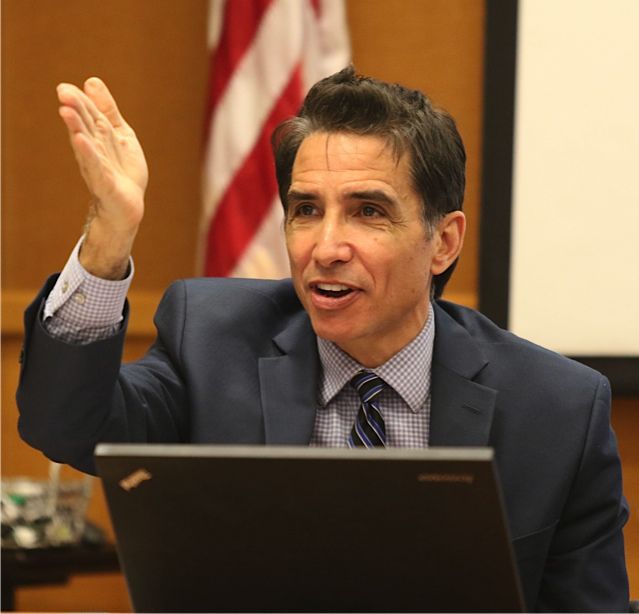By Philip Sean Curran, Staff Writer
From battling the Princeton Charter School to working on the annual school budget, the Princeton Board of Education will soon turn its attention to another pressing topic of equal or greater importance., The future of Superintendent of Schools Stephen C. Cochrane., Though his contract does not expire until summer 2018, both sides have indicated they intend to start talking about the issue well before then., “I’m so focused on the district and on moving ahead with our strategic plan that I haven’t had that conversation with the board,” Cochrane said Monday. “I would say in the next month or two, I’ll probably have that conversation with the board.”, Cochrane, 56, declined to say, when pressed, whether he wanted to stay past his current deal. But school board president Patrick Sullivan, a sometimes critic of the administration, said last week that he hoped Cochrane “wants to continue.”, Sullivan is the last remaining board member still in office when the district hired Cochrane, to replace then-Superintendent Judith A. Wilson, starting in January 2014., In New Jersey, superintendents do not have tenure and have their salaries capped, based on the size of the enrollment of their districts. Both of those factors have contributed to a high turnover, said one education expert., “They move around, also, from smaller districts to larger districts because the caps are higher in larger districts, so it allows you to make more money,” said Eunice Grippaldi, a former public school administrator who runs the educational leadership programs at Montclair State University. “Since you don’t get tenure, you know going in that you’re going to move if you want to increase your salary, because you have a cap.”, In Cochrane’s case, he is in the fourth year of a four- and 1/2-year-deal that pays him $167,500 annually, not including bonuses he gets for meeting merit goals. The job became available because Wilson, who was making more than $200,000 a year, opted to leave rather than take a pay cut when the salary cap would have applied to any new contract she signed with the district., “You’re seeing a lot more movement in superintendents over the last five to ten years than ever before,” Grippaldi said. “Before you could be lifers as superintendents. That’s a rare breed now.”, Superintendents face an array of pressures that come with the job, from keeping school board members and parents happy on one hand to dealing with controversies and making unpopular but needed reforms on the other. Cochrane, during his time in Princeton, has sought to address student well-being and instituted a series of homework free weekends at Princeton High School, in a move to reduce students’ stress., “You can keep teachers and parents and kids quiet by making all sorts of compromises that have nothing to do with pushing a student achievement agenda,” said Eric Nadelstern, a former deputy schools chancellor in New York City who today is a professor at Columbia University’s Teachers College. “If you want to push a student achievement agenda, you’re going to piss people off, because it means you’re going to get rid of low performing teachers. It means you’re going to push your staff to do better than they’re doing now, it means you’re going to involve parents in their kids’ education.”, Working in Princeton was a homecoming of sorts for Cochrane, a Seattle native who went to Princeton University as an undergraduate starting in 1977., Through his career in public education, he climbed the ranks from a classroom teacher to a principal to central administration as an assistant superintendent in Upper Freehold, the post he had before getting the Princeton job. He has talked of Princeton being “a lighthouse district.”, “I am inspired every day by a vision of what I believe this district can do not only for the children of Princeton,” he said in an interview posted on the district web site, “but for the field of education and for children all over.”

